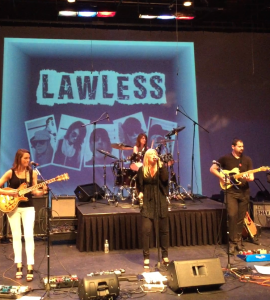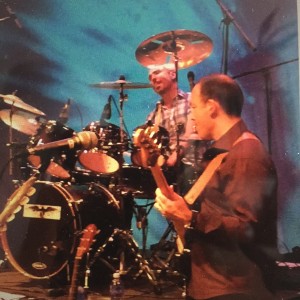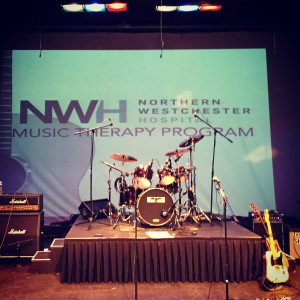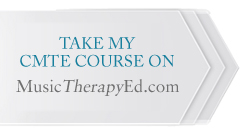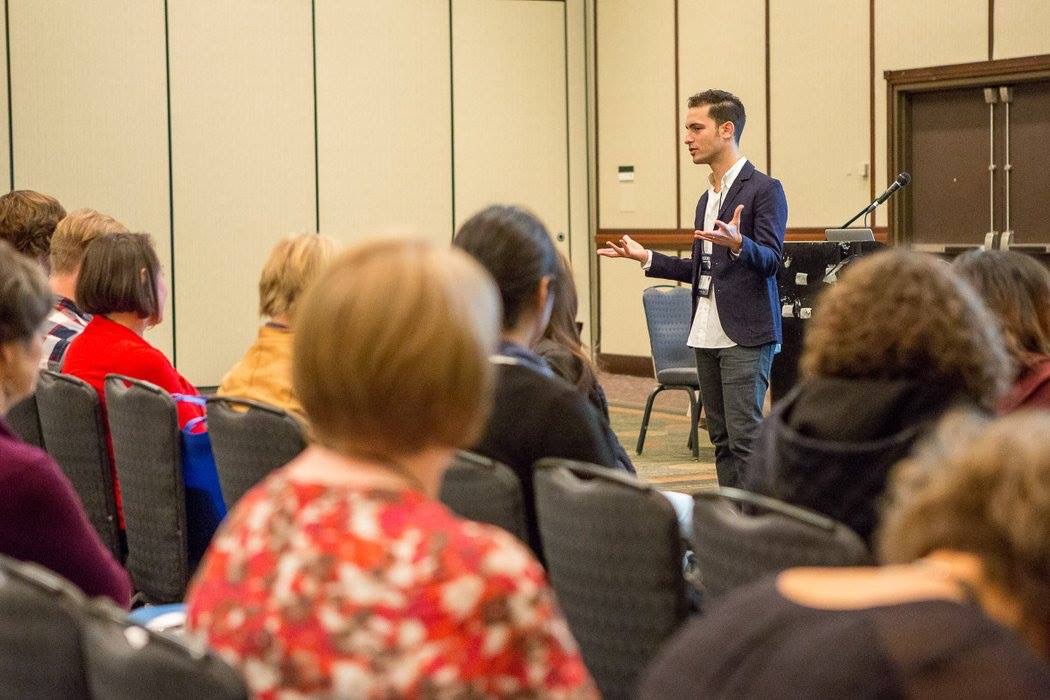
Latin Rhythms at AMTA 2015
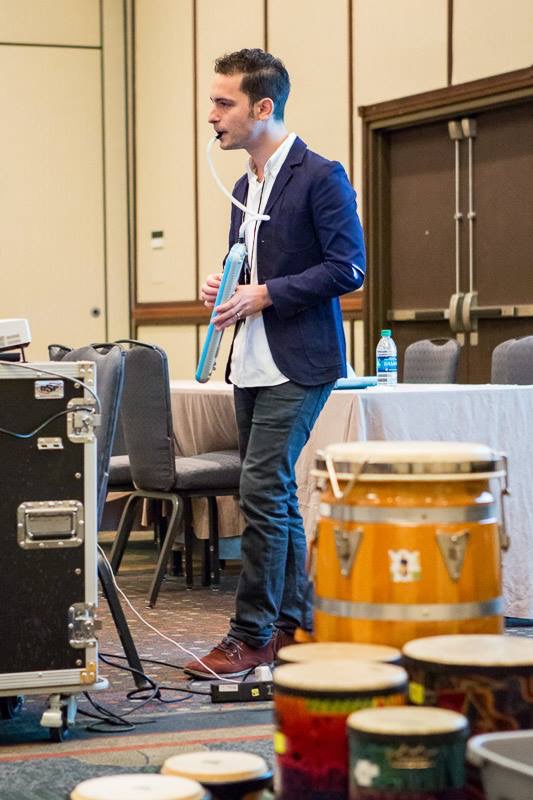
Every year, the American Music Therapy Association holds a national conference where the music therapy community meets to discuss the latest advancements in our field and make important decisions that pave the way for the present and future of the profession. I love attending these conferences because it helps me remain acquainted with the latest research. It also gives me an opportunity to learn from others, share my experience, and grow as a clinician through the many enlightening discussions and conversations I get to have with my brilliant friends and colleagues.
This year the conference was held in Kansas City, and I had the honor of presenting about Latin rhythms and how they can be used clinically.
[/x_text]I was glad to have a fantastic turn-out of about 70 music therapists from around the country. We discussed the importance of taking culture-specific considerations when working with our clients, and focused on the incredibly diverse and influential Latin community. We briefly touched on major musical styles from Latin America, yet spent most of our time looking closely at rhythms based on clave such as Son Montuno, Cha-cha-cha, and Bolero. Participants got a chance to understand, play, and experience the different components of these fun intricate rhythms. We proceeded to discuss how we can use these material with Latin and non-Latin clients in different music therapy settings. We all had an absolute blast and came out dancing with our enriched musicality. Check out the video on the right to get a glance at our experience! To learn more about Latin Rhythms in music therapy click here.
[/x_text]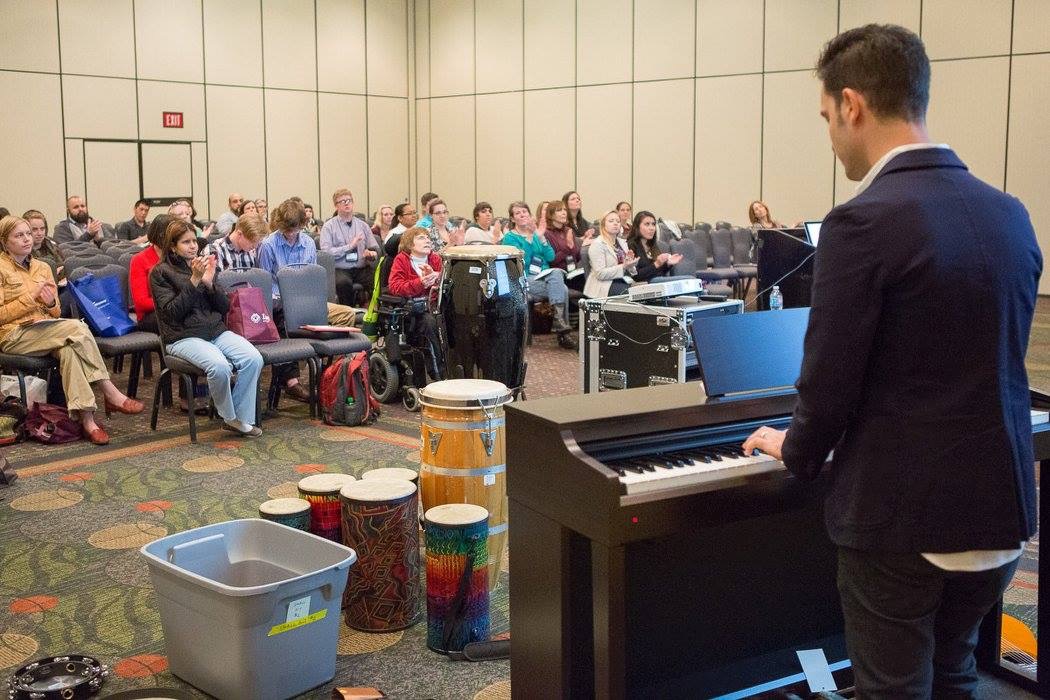
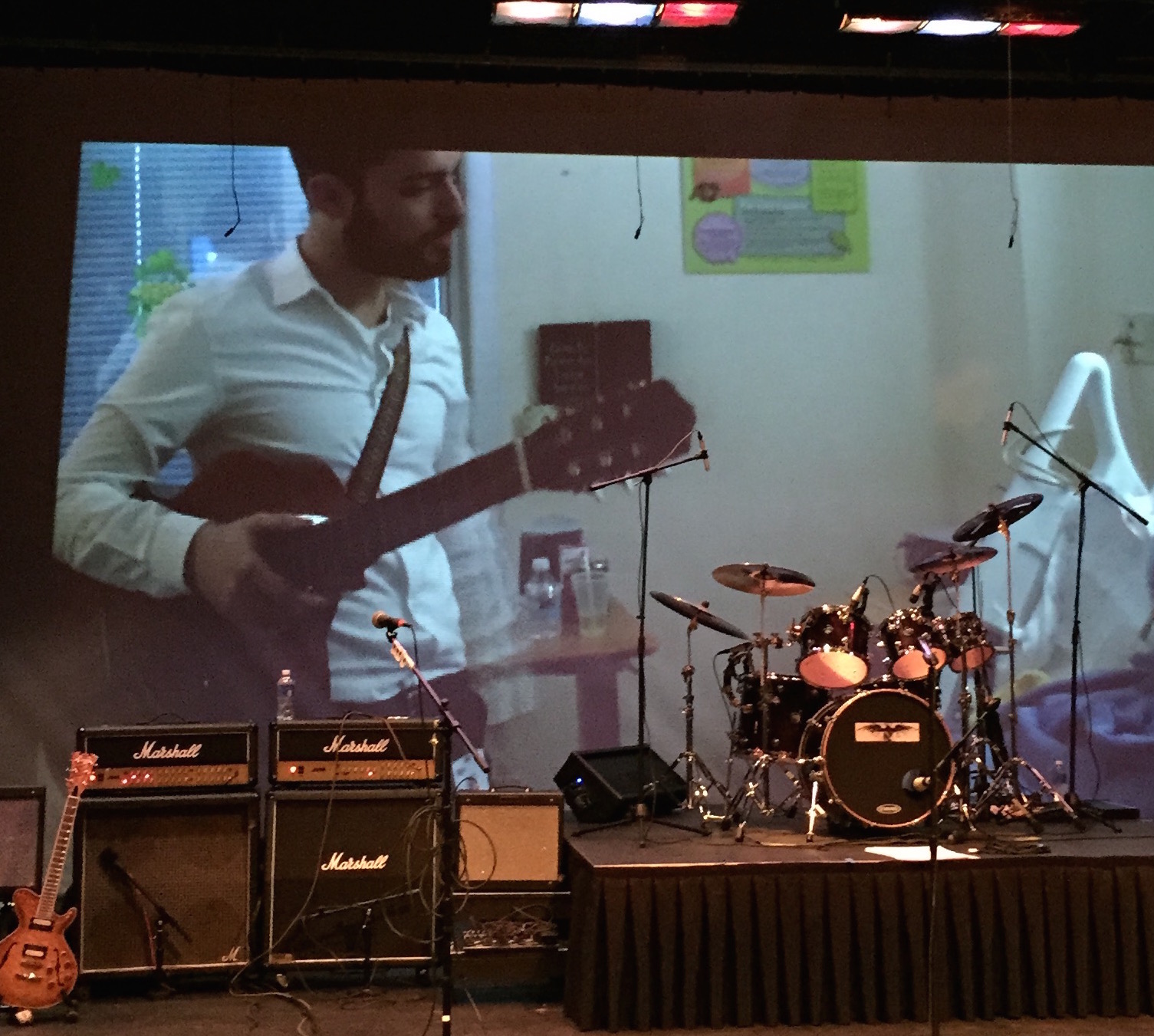
Northern Westchester Rocks for Music Therapy
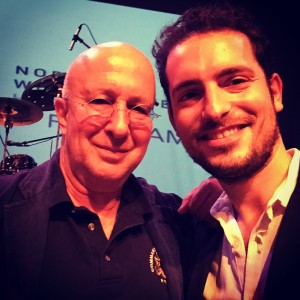 We had an incredible time at the annual Moms and Dads Rock For Music Therapy concert that helps support our program in Northern Westchester Hospital, held at the beautiful Harvey School in Katonah, NY.
We had an incredible time at the annual Moms and Dads Rock For Music Therapy concert that helps support our program in Northern Westchester Hospital, held at the beautiful Harvey School in Katonah, NY.
The lineup consisted of the excellent bands Lawless, ONL, and The Shaves, along with a special appearance by the amazing Paul Shaffer. Comedienne Christine O’Leary bridged the acts together, as Cathy and Paul Shaffer, and Anita and John Bae, hosted the wonderful evening in collaboration with the Northern Westchester Hospital Foundation.
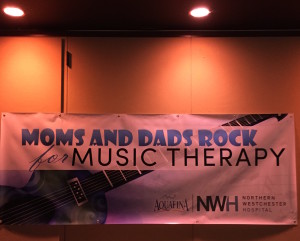 It is an absolute honor to work with a community that is so eager to make a difference in the quality of life of its members. I can proudly say that we are building something special together.
It is an absolute honor to work with a community that is so eager to make a difference in the quality of life of its members. I can proudly say that we are building something special together.
I want to take the opportunity to give special thanks to Cathy and Paul Shaffer, Joel Seligman, Maria Hale, Keeva Young-Wright, and Whitney Wasserman, for their dedication to music therapy and their trust in Berko Music Therapy. To Susan Raskin, Tony Russo, Carolyn Szala, and Joanie O’Keefe, who work with me every day. And to all the doctors, therapists, nurses, and receptionists, who collaborate with us, cheer us at our arrival, and believe in the work we do. The following video was shot by Ben Sultan and edited by Sue Lacolla, and is just a grasp of what goes on in the hospital every week.
Below are a few more images of the night. Thanks again to the sponsors, bands, hosts, and attendees for making it happen.
For more coverage of the event please visit: https://www.allaboutbedford.com/harvey-school-14-15.html
Learn More
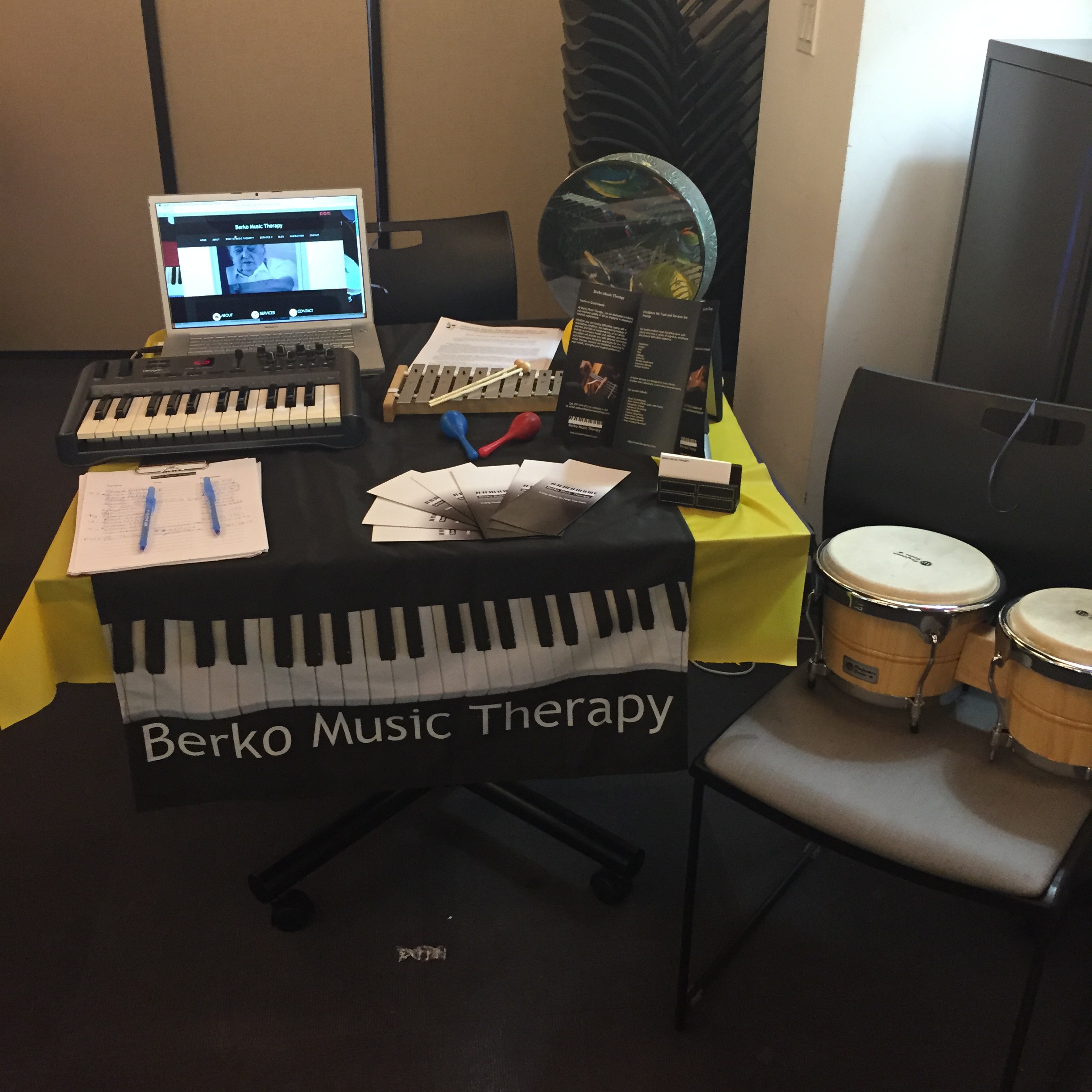
Community Health Fair
We recently participated in a wonderful holistic health fair hosted by Stein Senior Center. We were invited along with other healthcare providers, and had the opportunity to chat with members, families, and clinicians about how music therapy can help the community. The instruments displayed were hard to resist and improvised jams naturally emerged from numerous interactions. Once again it is evident that the power of music is immediately available for those who dare to use it.
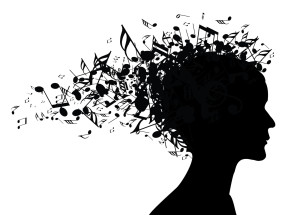
To learn more call us at 347-774-1712 or email us below.
[contact_form]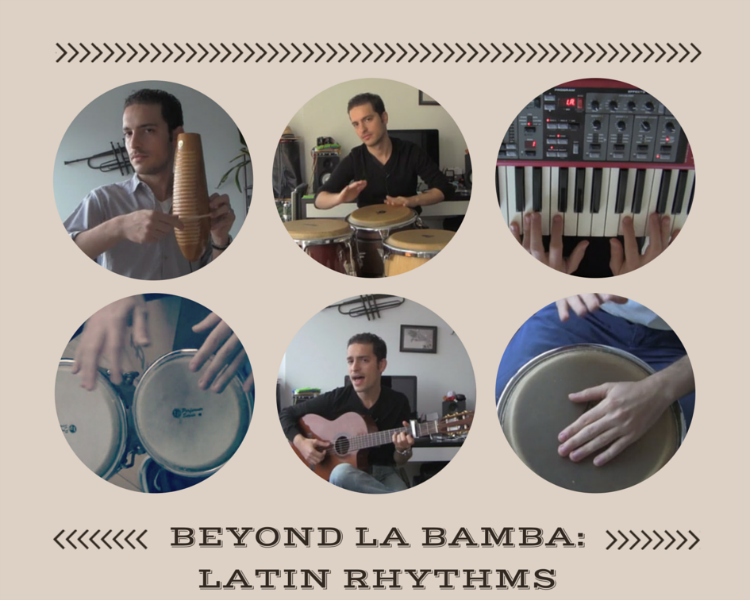
Spicing it up with Latin Rhythms at Music Therapy Ed
I recently released a CMTE course with one of the leading online resources for music therapists, Music Therapy Ed. The course is called Beyond La Bamba: Latin Rhythms, and it was created to help music therapists develop skills to connect with clients and patients who have a preference for Latin music.
I was exposed to a lot of great Latin music while growing up in Mexico and while studying at Berklee College of Music. I have also been fortunate enough to work with a vast amount of clients and patients of Latin background while living in New York City for the past ten years, and I am thrilled to have the opportunity to pass along some of the information I have acquired.
Beyond La Bamba: Latin Rhythms with Ariel Weissberger, MA, MT-BC from Kathryn Fulton on Vimeo.
Unlike an artist who expresses his own personal feelings, stories thoughts and points of view through his art, a music therapist focuses on the client’s own experience. Within a therapy session a music therapist is as unlikely to play a personal break-up song per se, as a psychoanalyst is to talk about his own mother. In other words, the music therapist’s music is about the clients, and its role is to facilitate music experiences by bringing out the music in them while working on musical and non-musical clinical goals. This puts us music therapists in a position where we are constantly learning new songs and styles of music in order to have as many tools as possible to do our job. It also speaks volumes about the amount of effort, care and dedication we put into our work.
Latin styles of music are an essential part of the music therapist’s toolbox not just because the Hispanic population is the largest minority in the US, but also because Latin music is extremely popular among non-Latin people. Furthermore, Latin rhythms are quite present in a lot of music genres of today’s eclectic world.
Latin rhythms can be challenging but are also highly engaging. The mere task of working on them can positively impact the rhythmic sense and overall musicality of any musician. If you are a music therapist, music educator or musician looking to get started on Latin rhythms to spice up your music, I invite you to join the course by clicking below. Are you up for the challenge?
Learn More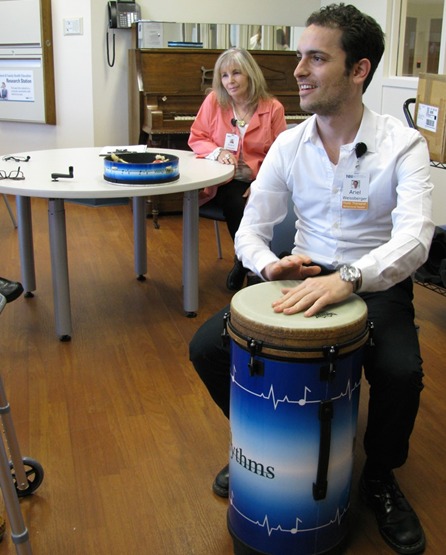
Back in Northern Westchester Hospital
Berko Music Therapy is back in Northern Westchester Hospital with a new revamped music therapy program in collaboration with patient advocacy and integrative health departments. Based on the Planet Tree award-winning program we were previously involved with at the same facility, we are providing individual and group music therapy sessions for inpatient psychiatry, adult inpatient rehabilitation, post-surgery and general hospital units.
We are working within the clinical goals of each patient in order to help achieve maximum gains in treatment, accelerate recovery and cope with hospitalization.
Among the supporters of the program are Cathy and Paul Schaffer (David Letterman’s musical director).
The following is an interview published in the Journal News with vice president of patient advocacy and patient centered services Maria Hale, who discusses the impact of the program.
http://www.lohud.com/story/news/2014/06/23/music-therapy-benefits-hospital-patients/11271557/
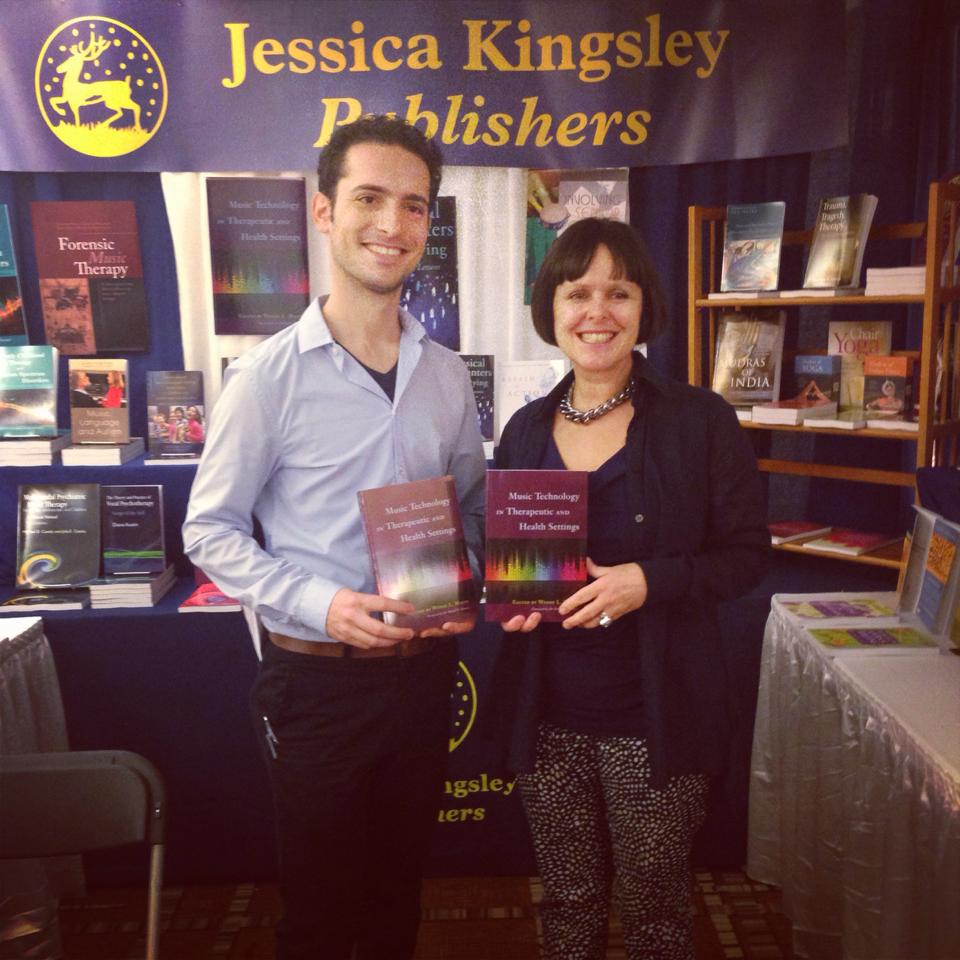
Published! – On Music Therapy and Technology
I have the honor to be featured in Dr. Wendy Magee’s new book called Music Technology in Therapeutic Health Settings, published by Jessica Kingsley Publishers, one of the top publishing companies in the field .
Dr. Wendy Magee is a world renown professor, researcher and music therapist. For this project, she recruited a number of music therapists currently doing breakthrough work with music technology, and asked each to write a chapter about it.
I wrote chapter 15. Garageband as a Digital Co-Facilitator: Creating and Capturing Moments with Adults and Elderly People with Chronic Health Conditions.
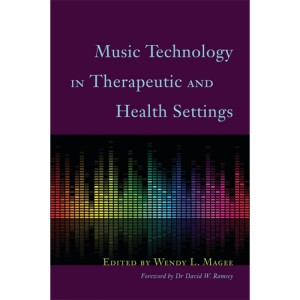 In this chapter I talk about how I used Apple’s music software Garageband in a music therapy group I ran for Spanish speaking registrants at an adult day health center in Bronx, NY. This was one of the many programs I had the opportunity to design and implement while working with the Institute for Music for Neurologic Function. The group recorded a full album of original songs as part of their creative therapeutic process.
In this chapter I talk about how I used Apple’s music software Garageband in a music therapy group I ran for Spanish speaking registrants at an adult day health center in Bronx, NY. This was one of the many programs I had the opportunity to design and implement while working with the Institute for Music for Neurologic Function. The group recorded a full album of original songs as part of their creative therapeutic process.
Perhaps my central argument is that technology not only can facilitate musical, creative and therapeutic processes, but also help adults and elderly feel connected to the current trends in the world surrounding them. In this group in particular, members have at least three barriers that are potentially isolating: culture, age and health related. The use of technological devices such as laptops and ipods may at least partially diminish a little bit of each.
A number of participants in the program reported feeling more connected to their younger family members after gaining a better understanding of current technology related cultural trends. They were also able to work together relying on each other’s strengths to minimize their weaknesses. A stroke survivor with a speech deficit was able to thrive in the group due to her intact memory, while a woman with early stages of dementia was able to utilize her great diction to contribute to the group in spite of her deteriorating memory skills.
With the use of technology we were able to capture the meaningful moments we created, maximize them and reflect them back. The production of the album provided the context in which we relied on for guidance and purpose. In the chapter, I describe some techniques implemented to support, fulfill and magnify the creative ideas of the group. Such techniques include overdubbing, multi-tracking, and looping.
I am hoping some of these ideas can add something to the ever present yet increasingly pertinent discussion of technology related issues in the field. What is our role as music therapists/album producers? How much should we add our own aesthetic ideas? How much do we ‘fix’ notes and mistakes? What are some counter-indications to the use of technology?
Congratulations to Dr. Wendy Magee for putting together this extremely important book, to Dr. David Ramsey -who I consider my mentor- for his genius foreword, and to all the brilliant music therapists who wrote and participated. I am thrilled to be a part of it!
You may order the book directly at Jessica Kingsley Publishers or at Amazon.
Learn More
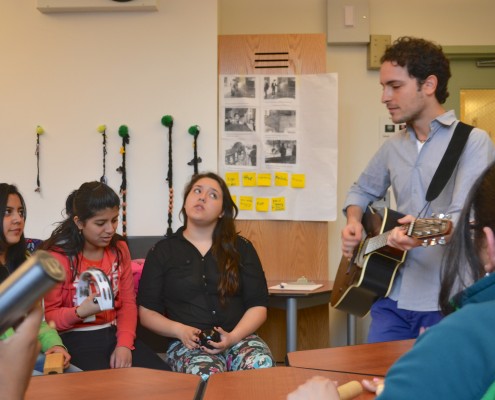
Music is Universal
I recently had the opportunity to work with some amazing people at Laguardia International High School. I was invited by art therapist Alicia Ballestas to give a workshop for students who immigrated from Latin American countries.
It was greatly inspiring to hear what these bright young minds had to say.
These are some of the main points we discussed: (more…)
Learn More
